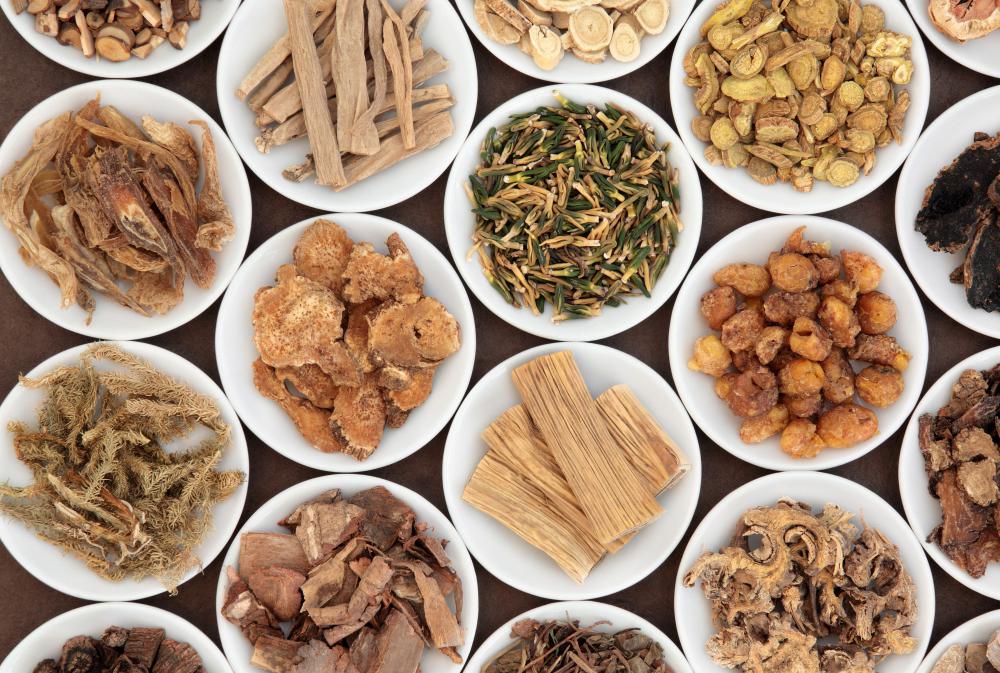At WiseGEEK, we're committed to delivering accurate, trustworthy information. Our expert-authored content is rigorously fact-checked and sourced from credible authorities. Discover how we uphold the highest standards in providing you with reliable knowledge.
What Is a Crude Drug?
A crude drug is naturally occurring drug with pharmacologically active ingredients in an unrefined state, requiring no additional processing for use. An example is ginseng root; patients can consume fresh or dried roots straight in addition to grinding them into powder for use in capsules, teas, and other preparations. The root is ready to use as it comes out of the ground, in contrast with other botanical pharmaceuticals that may require processing to extract useful compounds. Traditional medicine in many cultures relies heavily on crude drugs to treat patients.
Leaves, flowers, roots, and whole plants can be crude drugs, as can other living organisms. Some crude drugs are found in fungi, lichens, or even rocks. In all cases, it is possible to collect the drug in nature and use it as is. Some crude drugs may be cultivated to provide a controlled and readily accessible supply of the drug for use. Most can be dried or otherwise preserved to make it possible to store reserves, rather than having to rely on fresh sources of a crude drug.

Doctors can prescribe a plain crude drug or prepare it to make it easier to take. These crude drug can be made into teas, capsules, syrups, and other pharmaceutical products. Their shelf life varies, depending on handling. Usually they need to be kept in a cool, dark, dry place to retain potency. Traditional Chinese medicine (TCM) calls for crude drugs, as do ayurveda and other traditional medical practices from cultures all over the world.

The drawback of using a crude drug is inconsistency with dosing and quality control. Potency of herbs, for example, can vary on where and how they grow, the handling of the herb during harvesting and storage, and other factors. This makes prescribing challenging, as it is not possible to determine the dosage without expensive testing of each individual plant, so doctors need to estimate on the basis of the average potency. Some more advanced pharmaceuticals are derived from crude drugs, while others were developed first by refining crude drugs, and then developing a synthetic formula to make the biologically active ingredient without having to refine natural ingredients.

In conventional medicine, the use of crude drugs is rare, as doctors prefer more reliable medications for patient treatment. Some doctors are willing to work with them as a form of complementary medicine, and can help patients find herbs and other treatments to take as an adjunct to existing treatment. Others may prefer not to use such medications at all. One thing for patients to be aware of with crude drugs is that they can interact adversely with each other as well as with conventional medicines, potentially reducing efficacy or causing serious side effects.
AS FEATURED ON:
AS FEATURED ON:














Discuss this Article
Post your comments